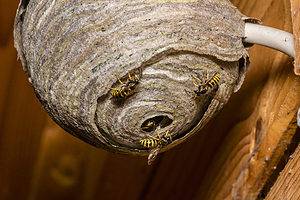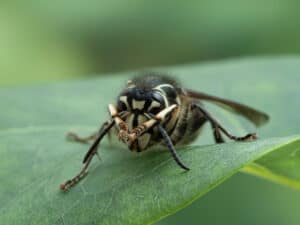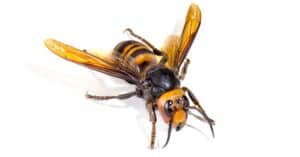Bees and butterflies may be the most familiar pollinators, but they aren’t the only ones. Other insects and birds are beneficial pollinators for the garden, including hummingbirds, wasps, flies, and beetles. Yellow jackets are a type of wasp that pollinates, although not as efficiently as bees. However, yellow jackets do have an important role to play in nature. Read on to learn more about the significance of yellow jackets.
Are Yellow Jackets Pollinators?
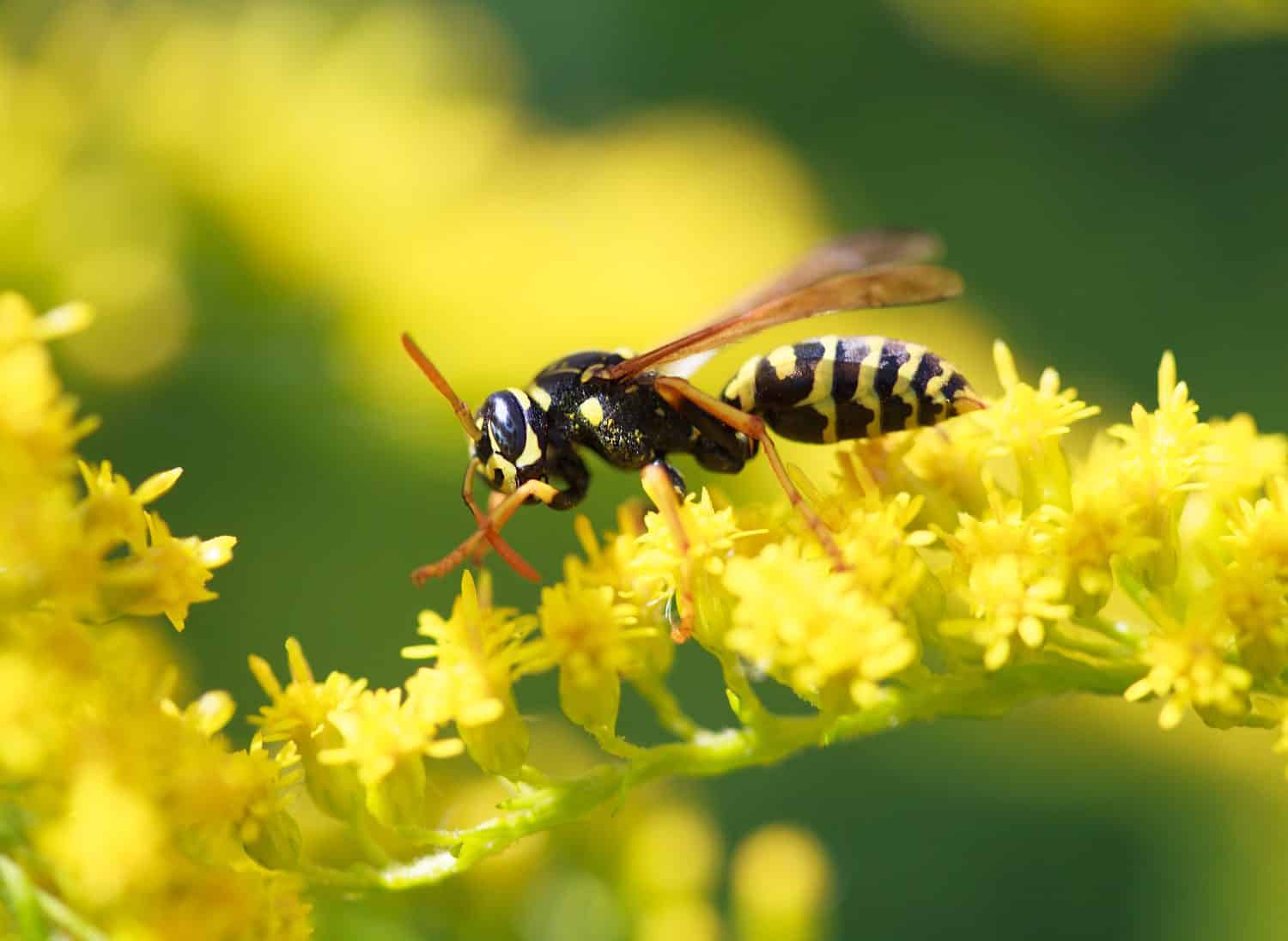
Yellow jackets are pollinators and will move from flower to flower.
©Fiery Phoenix/Shutterstock.com
Yes, yellow jackets are pollinators. However, they aren’t the most efficient of pollinators. Unlike bees, which have tiny hairs on their bodies and legs that trap a lot of pollen, yellow jackets have smooth bodies. They do transport pollen as they fly from flower to flower, but it’s a less significant amount than other more efficient pollinators. Yellow jackets play a more beneficial role in the garden as pest control.
How Valuable Are Yellow Jackets to Nature?
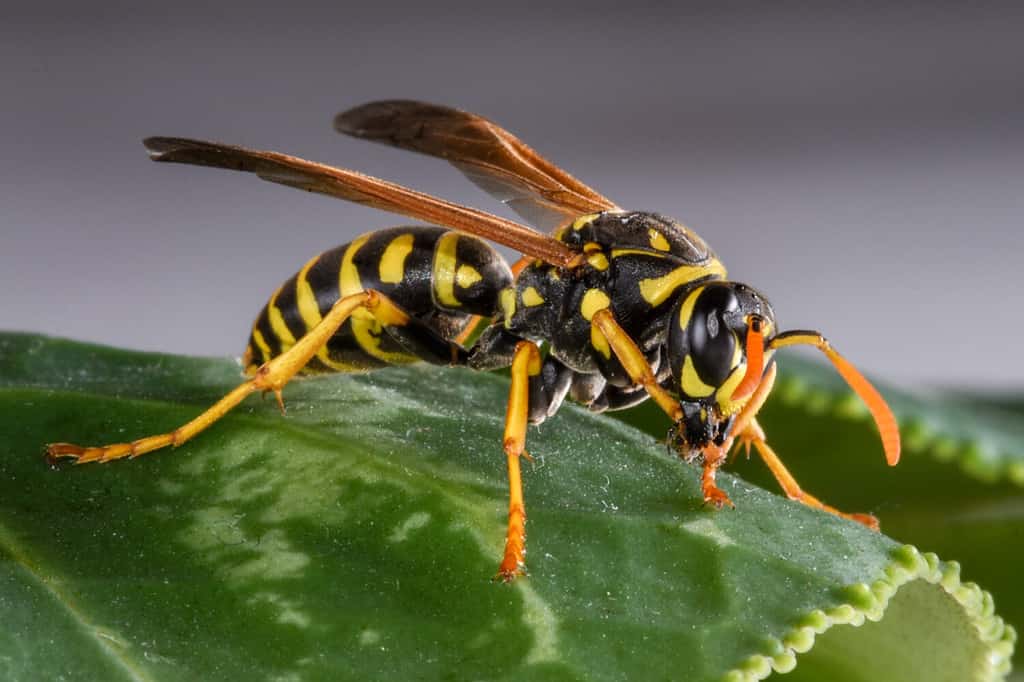
Yellow jackets prey on other insects like flies and bees.
©Randy Runtsch/Shutterstock.com
Yellow jackets are a type of wasp in the Vespidae family. Commonly known as yellow jackets or yellowjackets, they are sometimes mistaken for bees due to their yellow and black coloring. Similar to bees, they live in colonies with workers, queens, and drones.
Although yellow jackets have a negative reputation for being aggressive stingers, they have their benefits. According to the Georgia Wildlife Resources Division, yellow jackets “are capable of capturing more than 2 pounds of insects from a 2,000-square-foot garden plot.” Yellow jackets hunt flies, caterpillars, beetle grubs, spiders, and other insects. They are also scavengers and will eat dead worms, road kill, and carrion. Yellowjackets will help keep your garden free of harmful insects.
If wasps, including yellow jackets, were to go extinct, the world would become overrun with pest insects. They also provide an important food source for many birds and mammals. Bears, raccoons, moles, armadillos, and skunks are all known to eat yellow jacket nests.
Why Are Yellow Jackets So Aggressive?
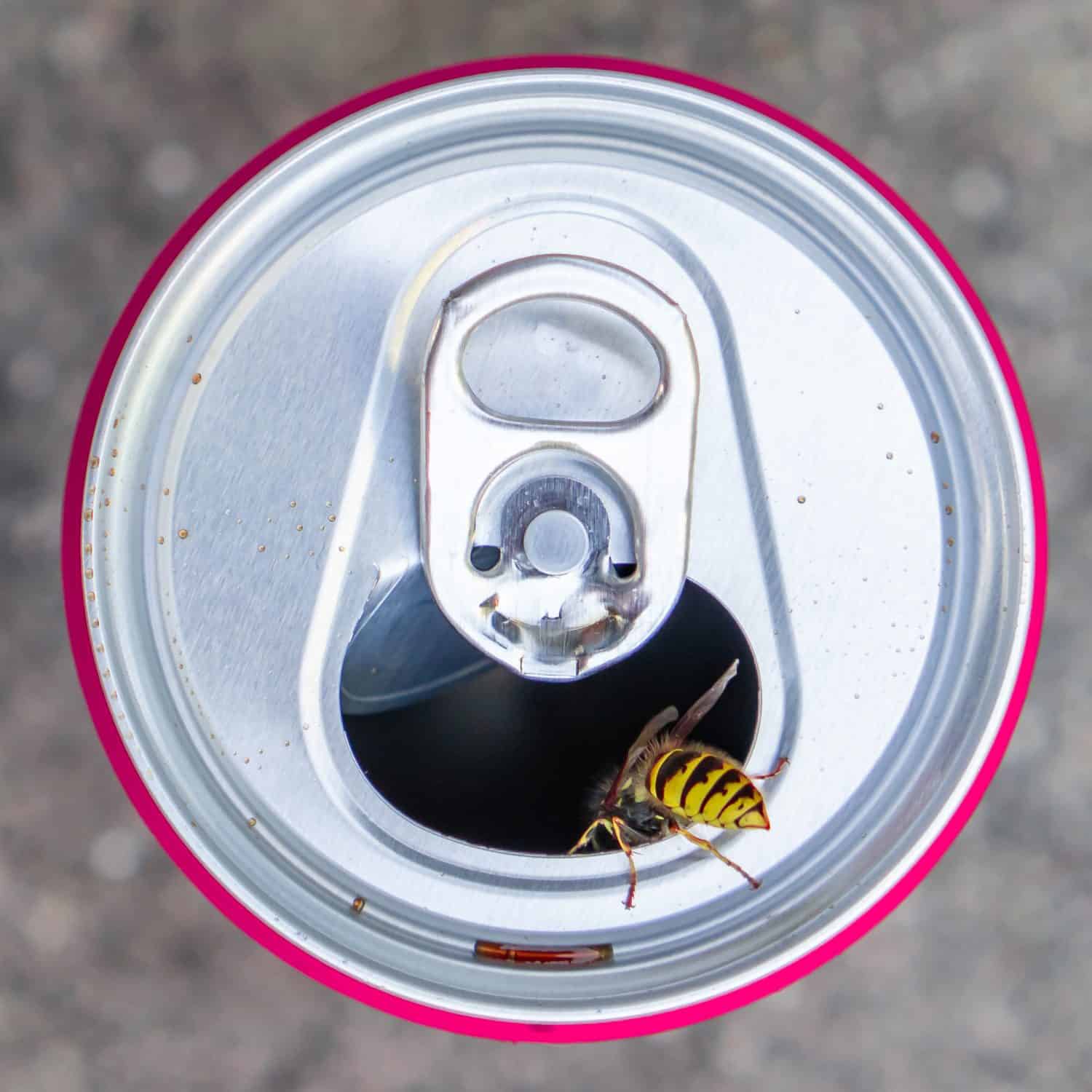
Yellow jackets are attracted to sugar drinks and will sting if threatened.
©A. Kiro/Shutterstock.com
Although yellow jackets are beneficial to nature, they can be a nuisance to humans. Although these wasps won’t attack without reason, they become alarmed when someone passes too close to their nests. Yellow jackets will aggressively defend their nests against anyone making the mistake of wandering too close.
Also, unlike bees, yellow jackets can sting multiple times. When a yellow jacket feels that it’s under threat it releases a pheromone, which can be detected by other yellow jackets. The wasps will then become aggressive and join in on the attack.
Should You Leave a Yellow Jacket Nest in Your Garden or Destroy It?
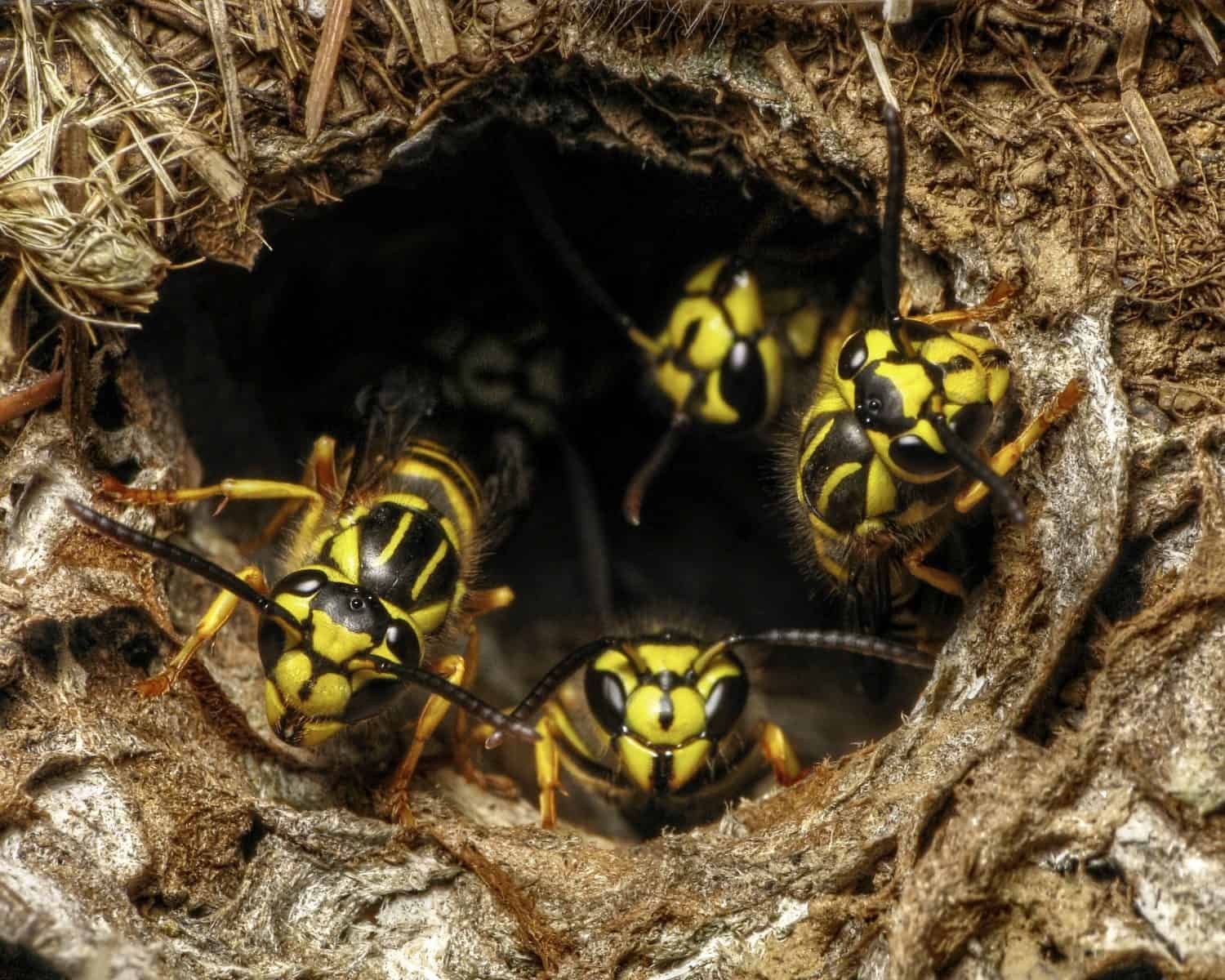
If you need to have a yellow jacket nest removed from your yard, it’s best to leave it to professionals.
©Sean McVey/Shutterstock.com
Because of their value to nature, wildlife experts recommend leaving yellow jacket nests unless they pose harm to humans or pets. For one thing, yellow jackets can’t survive winter. Freezing temperatures will take care of any underground or aboveground nests. If you have a nest that has become a nuisance, Oregon State University Extension Service recommends calling professionals to remove the nest rather than handling it yourself.
The photo featured at the top of this post is © Henrik Larsson/Shutterstock.com
Thank you for reading! Have some feedback for us? Contact the AZ Animals editorial team.




